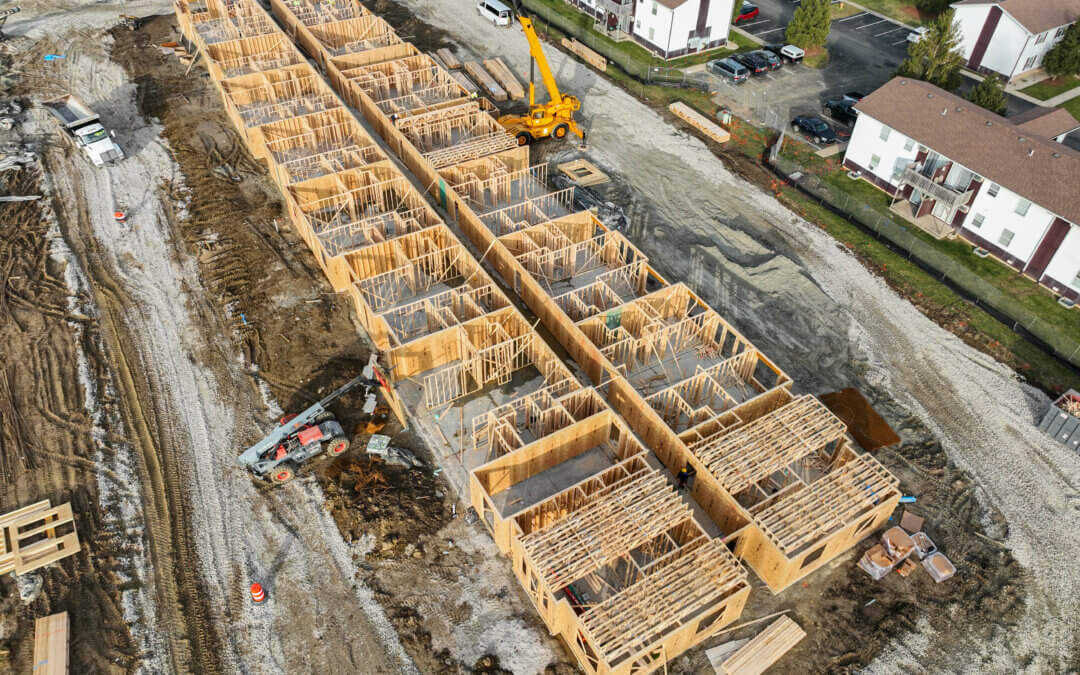Why Modular Construction Is Reshaping the Future of Building
In a construction industry defined by shifting timelines, rising costs, and labor shortages, one method is standing out: modular construction.
Once considered niche, modular has grown into a mainstream solution for developers looking to move faster, build smarter, and reduce waste—without compromising on quality. Between 2015 and 2023, modular’s market share in North America tripled, now accounting for 20% of new multifamily starts, according to the Modular Building Institute (MBI). But what’s fueling this momentum?
Let’s take a look at the advantages—and the considerations—that are driving modular forward.
Speed and Efficiency: A Compressed Timeline Without Compromise
One of the biggest advantages of modular construction is time. Projects can be completed 30% to 50% faster than traditional builds because site preparation and module fabrication happen simultaneously.
For example, at Resia Golden Glades in Miami, a hybrid modular approach shortened the timeline by six months. Faster construction means faster occupancy—which translates to earlier revenue generation for developers.
As noted by Whitley Manufacturing, modular also sidesteps many on-site delays. Factory environments aren’t impacted by weather conditions or subcontractor shortages, allowing for smoother, more predictable scheduling.
Cost Savings Through Control and Efficiency
Modular construction reduces many of the variables that traditionally inflate budgets:
-
Lower labor costs thanks to streamlined off-site fabrication
-
Less material waste, with components built to precise specifications
-
Minimized need for temporary site infrastructure
-
Reduced insurance premiums, due to stronger quality control and fewer site risks
According to Volumod, off-site construction can also limit long-term maintenance expenses. With higher durability and fewer defects, buildings age better—saving owners money down the road.
Quality Control That’s Built In
When construction happens in a factory, quality isn’t just a goal—it’s part of the process.
Modules are assembled under strict supervision, with consistent materials and climate-controlled conditions. This leads to:
-
Fewer on-site errors
-
Better finishes, from drywall to cabinetry
-
Improved structural consistency across the board
Both Whitley Manufacturing and Volumod highlight that this level of quality control is difficult to achieve with traditional builds, where variables like weather, trade overlap, and inconsistent inspections are the norm.
Sustainability and Site Safety
Modular construction also offers a lower environmental impact:
-
Waste is minimized through bulk ordering and recycling
-
Carbon emissions are reduced due to fewer site deliveries
-
Energy use is optimized during both construction and occupancy
From a safety perspective, factory-based work reduces exposure to on-site hazards. Fewer trucks, fewer tools on active sites, and controlled workflows mean fewer accidents and disruptions—especially important for projects in high-traffic or residential areas.
Fewer Disruptions, Happier Communities
Because so much of the build takes place off-site, modular construction causes less neighborhood disruption. There’s:
-
Less noise and traffic
-
Reduced equipment congestion
-
Fewer weather delays or staging interruptions
That’s a major benefit for urban infill projects or builds adjacent to residential zones—where community impact and public perception matter.
Understanding the Trade-Offs
While modular is a powerful solution, it’s not a fit for every project. Considerations include:
-
Standardization limits: Some design flexibility is sacrificed for speed and repetition
-
Transportation logistics: Modules must be delivered intact, which can be challenging for remote or dense urban sites
-
Permitting: Additional inspections may be required, including at the state level in some jurisdictions
Still, companies like Whitley and Volumod are demonstrating that customization and creativity are increasingly possible, even in modular builds.
Final Thoughts: Why Modular Works
Modular construction isn’t a trend—it’s a strategic shift. From faster timelines to controlled costs and lower environmental impact, the benefits are clear. Developers looking for long-term solutions in a high-demand market are turning to modular to meet the moment.
At Inherent Commercial, we see modular not as a shortcut, but as an opportunity—to build smarter, faster, and more sustainably. Whether you’re exploring modular for multifamily, commercial, or mixed-use development, our team can help you navigate the process with clarity and precision.
Interested in learning more about modular construction?
Let’s connect.

Recent Comments